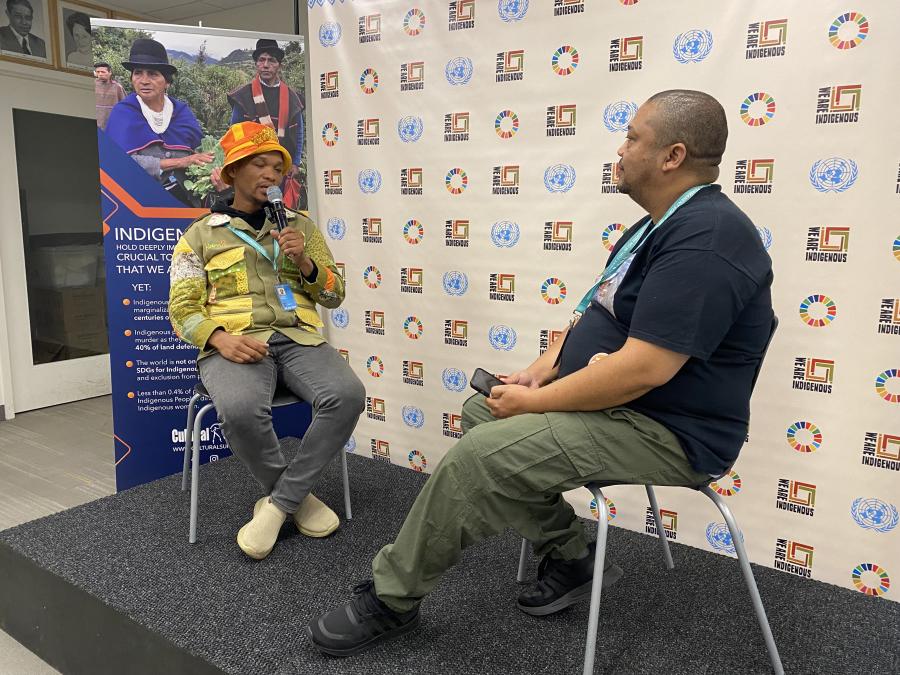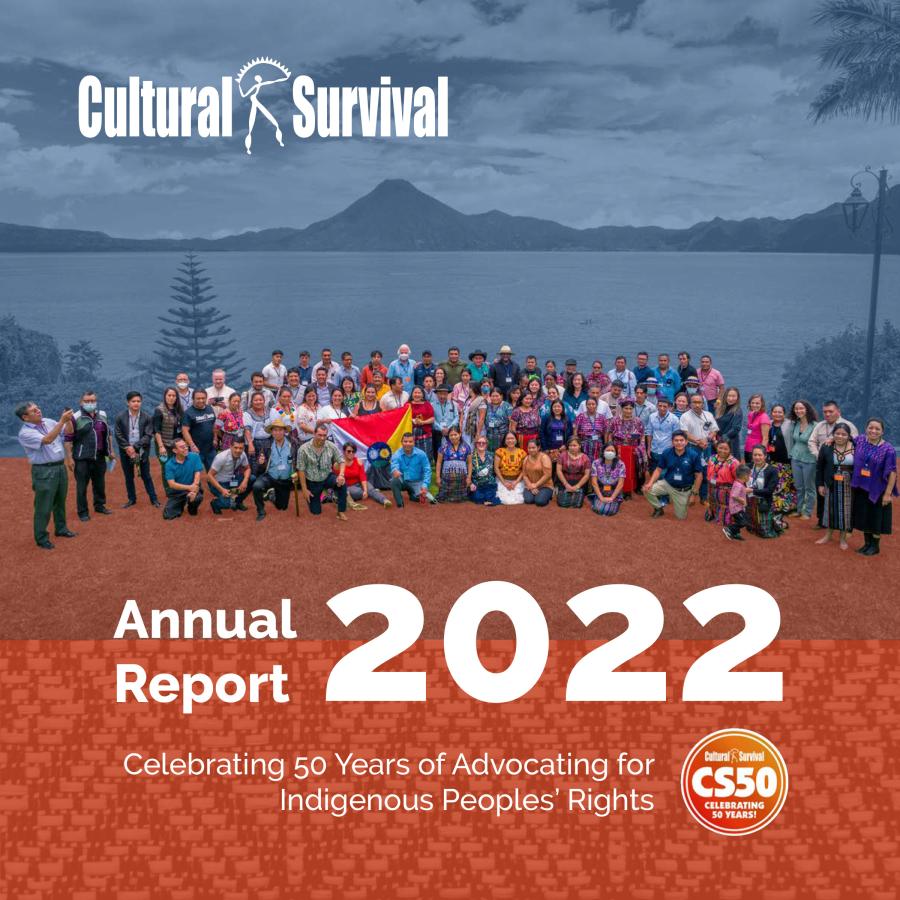
Thank you for doing this work. FPIC is a critical part of self-determination – and an inspiration for the Idle No More movement.
-Mining Watch Canada, via Twitter
We love this new radio series from Cultural Survival! FPIC for all!
- First People’s Worldwide
A timely and quite relevant initiative. Congratulations!
-Nestor Maniebo Pestelos, Tiagong, Quezon, Philippines.
PRESS RELEASE:
CAMBRIDGE, MA (Augut 8th 2013) To further advocate for the rights of Indigenous Peoples worldwide, Cultural Survival, an Indigenous Peoples’ rights organization based in Cambridge, MA has been developing an innovative new radio series to spread the word about the right of Indigenous Peoples to Free, Prior, and Informed Consent (FPIC). Cultural Survival has been producing and distributing a series of radio programs on the UN Declaration on the Rights of Indigenous Peoples to inform Indigenous listeners about their rights under international law. Working with communities to develop their own guidelines based on their unique experiences and cultural perspectives, Cultural Survival’s new radio series aims to build capacity, reinforce self-determination, and assist communities to organize to defend their rights. Our first round of content includes 20 public service announcements or ‘spots’, 6 three-minute interviews with Indigenous leaders, and 2 feature-length programs, in English and Spanish. These programs can be listened to and downloaded at consent.cs.org in English and consentimiento.cs.org in Spanish.
The principles of Free, Prior and Informed Consent seek to ensure that a given community has the right to grant or withhold consent for proposed projects that might affect their lands, resources, and territories. Development projects seeking to exploit marginalized areas at low costs often do not take into account the considerations of Indigenous Peoples who have lived on and protected these lands for countless generations. FPIC's emphasis on "prior" consent indicates that Indigenous Peoples should be involved in the early planning stages on any development project and before any decisions take place, thus bolstering the opportunity for Indigenous communities to have a voice in how the development process takes its form. The principles of FPIC are enshrined in the UN Declaration on the Rights of Indigenous Peoples and the International Labor Organization (ILO) Convention 169.
Reacting to the FPIC radio series produced by Cultural Survival, Vice Chief of the Federation of Saskatechewan Indian Nations, Bobby Cameron states, "I think its great what you're doing. Cultural survival and cultural values are things we are trying to instill in our communities. We support what you are doing and if there is anything we can do to help you we'd be happy to."
Kimbowa Richard of Kampala, Uganda says, "This is an excellent way in demystifying global commitments and legal concepts. Keep it up and bring out more!"
To bring home the idea on the local, rural level, Cultural Survival seeks to translate these programs into as many Indigenous languages as possible, with plans already in motion to record in Navajo, Hopi, Hawaiian, and at least six Mayan languages present in Guatemala, Mexico, and Belize. To learn about how to translate the programs into your Indigenous language, read our Get Involved page.
The programs' target audience is Indigenous Peoples in rural communities globally, via a growing network of community radio stations in over 25 countries.
[[{"fid":"61777","view_mode":"media_original","type":"media","attributes":{"height":600,"width":600,"style":"line-height: 1.538em; width: 300px; height: 300px; float: right;","class":"media-element file-media-original"}}]]
Alexie Kanrilak, producer at KCUK FM, Native Voice 1 Radio in Alaska comments that “After listening to a couple, I decided to get these aired right away…Very good work to all who work together on this worthwhile message for our people. We'll air these 4x a day so everyone may get the message from the young to old.”
Community radio is an excellent tool for spreading the message of FPIC, explains Rosy Gonzalez, a Kakchiquel Maya of Guatemala and the Spanish-language producer of the series. "Because community radio stations broadcast in rural areas, in native languages, they reach an audience that is being directly affected by development projects taking place without their consent. These programs will reach people who are living this problem and are interested in a solution."
Feedback from community radio listeners in Sumpango, Sacatepéquez states that:
“These programs are incredibly important. Often, we want to express ourselves on [development issues] in our community but we aren’t listened to. This initiative is important and it will help us when we’re confronting a situation where [authorities] are doing whatever they feel like and are not listening to us. We shouldn’t be lied to; so we must be informed, like it mentions in the radio programs. Usually we have only realized projects are happening when they already working. From what we’ve heard in these programs, it’s more than clear: this will help us, and we can help more people.”
"It is important to spread the word among Indigenous communities about the international instruments available for mobilization in struggles for their sovereignty and self-determination. Cultural Survival's radio programs concentrate on the principles of FPIC in order to make that knowledge free and accessible to Indigenous communities worldwide. While questions remain concerning the determinations made as to who might be affected by a particular development project, what it means to gain recognition as an Indigenous community, and to what member(s) within a community will serve as interlocutors to state and corporate interests, it is important to begin the dissemination of information and grant access to international rights for people calling on governments to respect, protect, and fulfill their obligations under international law," says Mark Camp, Cultural Survival Deputy Executive Director.
Find out more at cs.org/consent
On Friday, August 9 at 11:00AM EST we will be hosting a webinar, along with First Peoples Worldwide and the International Indian Treaty Council, entitled “Engaging FPIC: Understanding, Interpretation, and Self-Determination.” Please join us for this online panel discussion followed by a question and answer segment. You can follow the discussion on Twitter using the hashtags #FPIC and #P2BI. For more information, please see the Facebook event page or register online here.



